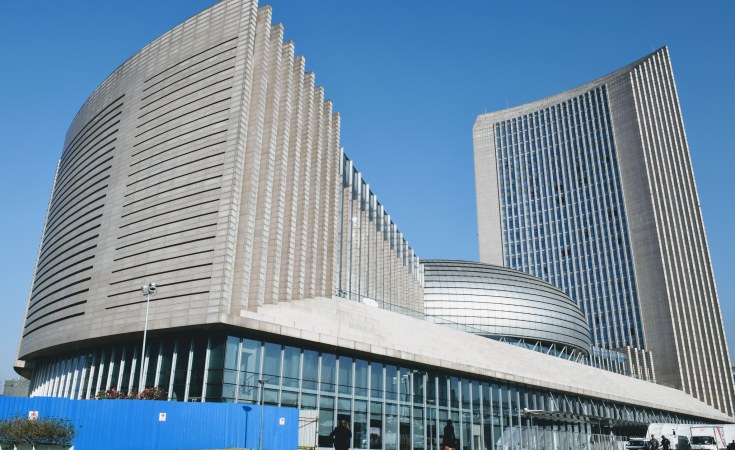Martin Ewi
The AU, launched in 2002, was meant to correct OAU weaknesses and achieve a more robust, proactive and efficient organisation with its secretariat, the AUC, as the fulcrum of continental integration. But problems that plagued the OAU secretariat seem to be resurfacing with the AU.
African heads of state have apparently abandoned the idea of a powerful AUC, and adopted attitudes that precipitated the OAU’s fall. Member states appoint the chairperson, deputy and commissioners, and influence directors’ appointments, leaving the AUC chairperson powerless and unable to hold incompetent senior managers accountable.
In rejecting a powerful AUC, African leaders are adopting attitudes that precipitated the OAU’s fall
Recent reforms have tightened the AUC budget and collapsed or merged some departments – similar to the OAU’s structure. For instance, the peace and security, and political affairs departments have merged, reverting to the OAU era. They were separated under the AU to intensify action on armed conflicts and emerging security challenges – regarded as the greatest threats to Africa’s development.
Merging the two may lead to some issues being overlooked. The current commissioner of the department has made election monitoring a prime focus. But as separate entities, political affairs could prioritise election monitoring while the peace and security department focused on conflict prevention, management, and resolution.
Keeping staff to a bare minimum has also weakened the AUC. The commission has 1 720 staff to service 55 countries. In comparison, the European Union Commission serves 27 countries with 32 000 permanent employees, excluding consultants and short-term staff. Some analysts argue that the quality of staff matters more than the quantity – but the AUC lacks both.
Sixty-one percent of the AUC’s staff are on short-term contracts because recruiting permanent staff hasn’t been possible. The commission has just 1 000 permanent staff. This has led to low morale and a drastic decline in productivity. Member states complain that they cannot finance a ‘huge’ AUC – even though they contribute less than 40% of the AU budget, leaving development partners to cover the bulk of the costs.
In its current state, neither the AU nor its member states can achieve Agenda 2063
Endless transformation and reform projects since 2003 have left the AUC more confused, less productive and fragile. The result is a commission reduced to a mere secretariat, similar to the OAU. Yet the AUC is expected to drive Africa’s ambitious Agenda 2063 goals and service 55 countries of about 1.4 billion people.
With no overarching continental mechanism to check and complement countries’ activities, states can act as they please, even when such actions threaten their sovereignty, other member states, or even the AU itself. This has weakened governments and fomented fragmentation. It has undercut state accountability and enabled coups and chronic and institutionalised corruption.Close
The phrase ‘Plus ça change, plus c’est la même chose’ has characterised Africa’s efforts to forge continental integration over the past 60 years. Regionalism has been a delicate balance between states that put their sovereignty first versus those seeing integration as a way to safeguard and protect independence. As a result, continental decision making has lacked consistency, vision and patronage – to the detriment of creating functional institutions. Regional economic communities and mechanisms exhibit similar weaknesses to the AUC.
No norms guide how African states should conduct their foreign policies or relations. For example, what principles are followed for hosting foreign military bases, especially where they threaten the sovereignty of other states?
A good first step would be to resolve AU funding issues and empower the AUC chairperson to be solely accountable for the commission’s work. The AUC should also have autonomy to recruit operational staff and senior managers, except the chairperson and deputy.
In its current state, neither the AU nor its member states can achieve Agenda 2063. Unless these issues are urgently addressed, the AU – like the OAU – risks becoming irrelevant.
Martin Ewi, Southern Africa Regional Organised Crime Observatory Coordinator, ENACT, ISS Pretoria
This article was first published in the ISS PSC Report.
Read the original article on ISS.

